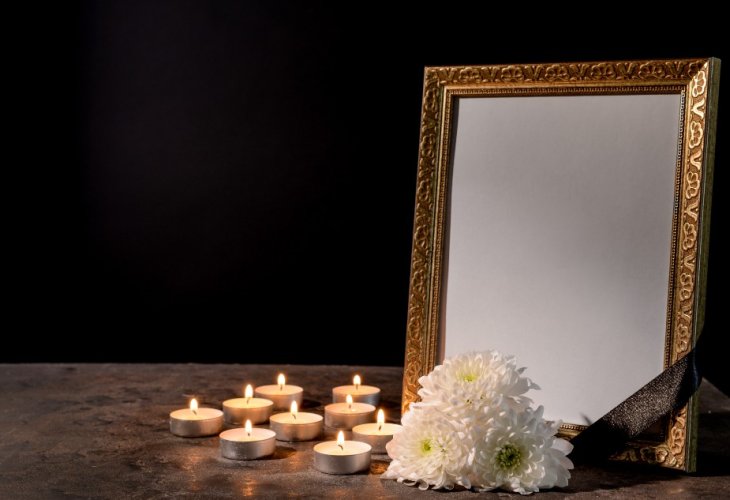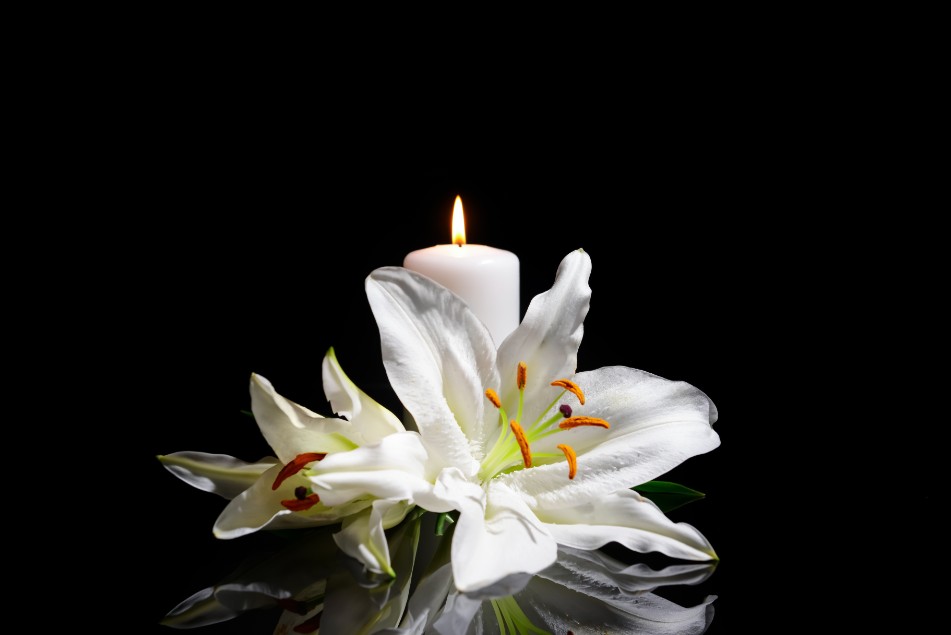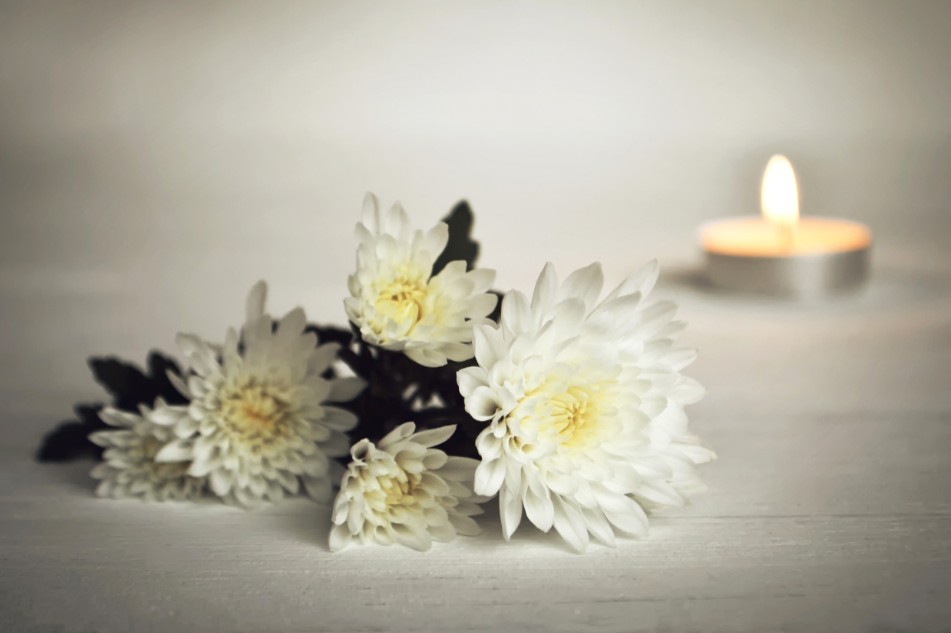The Widow's Counselor: 'They Expected Me to Be Sad and Depressed, But I Proved Them Wrong'
Shoshana Cohen's husband passed away when she was 40, leaving her with six children. During the mourning period, she decided: 'I will do everything to ensure my family and I will not become pitiful.' Today, she mentors other widows and has much to share with them.
 (Photo: shutterstock)
(Photo: shutterstock)Afternoon hours. My footsteps echo in the cross-streets of the Mekor Baruch neighborhood. I enter one of the streets with its ancient Jerusalem design. Climb a three-story building to the third floor. On the door, a mosaic sign reads "Cohen." I knock with slight apprehension.
A week earlier, I called Mrs. Cohen, "Hello, Mrs. Cohen, my name is Chen, and I write for the Hidabroot website. I heard you counsel widows. I'd love to interview you." Mrs. Cohen responded concretely, like a businesswoman, and we arranged to meet at her home. She would provide the coffee, I would bring the equipment. I envisioned a tall, tough yet kind figure. To my surprise, a woman of average height with a warm smile opened the door. She showed me where the coffee was, giving me a sense of home. The house is designed in a modern and luxurious style, with cognac-colored leather sofas, a spacious living room, and a dining room with a real wooden table and beige-brown leather chairs. The walls are adorned with pictures, some are paintings, and some show Shoshana's late husband.
 (Photo: shutterstock)
(Photo: shutterstock)'We Are Not to Blame for Father's Death'
We sit in the living room. Shoshana lifts her gaze to a giant black-and-white family photo hanging on the wall behind the sofa, causing her to smile nostalgically. "I grew up in Jerusalem," she begins her story from the start. "I was born into a very Jerusalemite, fascinating, and diverse family. A Haredi family, but open-minded. The family leader was my grandfather, may he rest in peace. My grandfather was brilliant and famous. The most prominent trait he had was unconditional love."
"I grew up as an only child, not by my parents' choice. My mother raised me with strong independence. She was a very temperamental woman. I was never bored. Our home was always full of people. My mother ran a school and had the reputation of an ultimate principal. Beyond education, she gave a lot of warmth and love to her students. I always had friends and greatly enjoyed life and company."
What was your education like?
"Like all my friends, I finished teacher’s seminary, although I didn’t want to be a teacher. But in those days, if you weren’t a kindergarten teacher, you were a school teacher, and then I got married." Here Shoshana smiles, showing her wisdom and wit. "I was twenty and married a wonderful and diligent husband. We were blessed with a wonderful family, six incredible children, lived a happy life, and then my husband passed away suddenly..."
"At what age did you become widowed?" I ask in a tone revealing the apprehension in my inquiry.
Shoshana continues with the same pleasant smile, radiating a good feeling, and answers: "I was widowed at 40, after my husband passed away suddenly."
Shoshana looks at me for a moment, and I shiver slightly. She continues speaking articulately: "I had a very good life and was left without warning with six children. Although two were married, I had four young children at home."
"You see, during the mourning period, I didn’t have time to mourn. I was busy soul-searching, thinking about how I would raise the family in a normal way like before, as much as possible. My mind was clear; my children would not be pitiful. For me, it was clear that the alternative was either to be pitiful or not, there was no middle ground, and it was clear to me what I would choose."
What made you even think about this?
"The truth is, at that stage, it didn’t come from me at all but from my surroundings. One day during the mourning period, Hashem sent me three widows who came to comfort me. (Not all at once, one after the other). I tried to question them about how the environment treats them; the answers weren’t reassuring. When they left, I decided to change the perception."
You talk as if it’s so simple...
Shoshana straightens up and raises her voice: "It really wasn’t easy. Our everyday life changed completely. I became the sole breadwinner and the responsible one for raising and educating the children. The children, naturally, experienced difficulties as orphans, and it accompanied them endlessly. You have to understand that if an orphan sees another child whose father pats him on the back and walks with him to the synagogue, maybe that father is abusive and harassing, but the orphan sees only the pat on the back and the walk to the synagogue, and his eyes are tearful."
How did your children react to the orphanhood?
"I think in a very healthy way because I taught them not to hide their orphanhood. They grew very mentally healthy. Here’s an example story: When my youngest son was seven, he argued with a friend, and the friend said to him, 'I’ll call your father and tell him what you’re doing.' My son wasn’t frightened; he humorously replied, 'Let’s see you, bring him.'"
So how, in practice, were you a happy widow raising children who were satisfied?
"It was expressed in all areas, both in the general feeling and practically. We went out on a fixed day every week, despite the heavy work pressure, for great recreation. Sometimes in the city, sometimes outside the city, sometimes just my children and sometimes with friends."
Shoshana continues speaking calmly, recalling, tastily savoring the past, and conveying to me in her speech the feeling of determination: "From the outset, I called my sister-in-law and told her: 'I’m going to build a family where the children will have a good life and they’ll see a happy widow.' She thought I’d lost my mind. But thank Hashem, I succeeded. This is how I also advise other widows."
And today, decades after the death, how is the family?
Shoshana: "Today, my children are happily married with good families. And I’m marrying off grandchildren, thank Hashem."
 (Photo: shutterstock)
(Photo: shutterstock)
'Why Should Others Be Comforted by My Misfortunes?'
In recent years, Shoshana has become somewhat of a ‘widow’s counselor’. They come to her on their own initiative or on the recommendation of relatives, and she urges them all in one thing: "Get out of the circle of misery, prove to the environment, and mainly to yourselves that your lives are beautiful and good."
But that's not true, reality is different. There is difficulty, and you can't ignore it
"Well, of course, there’s difficulty. I too experienced a hard time, there were many nights I lay and cried, but I kept it to myself." Here, she pauses and wishes to explain something important: "One of the problems of widows is that society expects them to wander around miserable and sad. So there’s a situation where an ordinary person gets fired from work or just argued with his wife about something, and then he goes out to the street, sees a sad widow, and thinks to himself: 'Well, compared to her, my life is actually good.' No, I don’t think our role as widows is to make people feel better because we’re pitiful, even though that’s what they expect from us."
Shoshana remembers meeting a close acquaintance immediately after the mourning period. "He asked me with interest: 'How does the environment receive you?' and I told him what the widows told me during the mourning period. After all, I was still new to the status and couldn’t testify from experience. I told him: 'Widows aren’t satisfied with the environment. I’ll do an experiment for a month and update you.'
"Another time, I was walking with the kids and saw one of my friends who hadn't contacted me since the passing. The friend clicked her tongue and said to me pitifully: 'Ah.. hard..' I surprised her by answering: 'Why, is it easy for you?' I really don’t think for a moment that my troubles are bigger than others'. I’m a happy widow, and I’m allowed to be."
When did you start applying this decision in practice?
Shoshana replies firmly: "Immediately. Already at the memorial service, a month after the passing, I stood upright and well-groomed. A friend approached me and said critically: 'You look upright and beautiful.' I replied: 'That's the biggest compliment you could give me.'"
And what gave you the strength to stick to this decision?
"I think it’s related to the fact that until my husband passed away, I had a very good life, really since I was born. All the good I received in the first 40 years of my life is what gave me the strength, the strength to give my children a very good life, as much as it depends on me. Because only good life gives strength to cope with problems."
Always with Joy
Some widows may feel uncomfortable reading these words. It feels as though by returning to a normal and happy routine, they are somehow forgetting their husband...
"God forbid," exclaims Shoshana, "Over all the years, I spoke with the children a lot about their father – their father, and there was ample room for expression. I explained to the kids that we didn’t cause their father’s death, and he’s happy with the family he built. Our family grew well, a nurtured and mentally healthy family, as much as possible. There were hard days, like when I drove to work in the rain while the kids were home, but when I came back to the kids, I smiled. I say: 'It’s not enough that they don’t have a father, should they also walk around sad?'"
What short tip can you give to other widows reading this?
Shoshana: "Don't be pitiful, even if that's what's expected of you. Be happy, create a happy family and children with a good life. It's a matter of a switch in your head, and that's it."
Mrs. Cohen and I parted with a farewell. In pensive steps, I exited to the dark street. Her words slowly seep into me. The strength she left in me remains burning inside, perhaps always will. I had the privilege of knowing a strong, wise, and sharp woman. Combining goodness and kindness, learning from every word she said. Drawing conclusions about me, about my daily life. Without being a widow.

